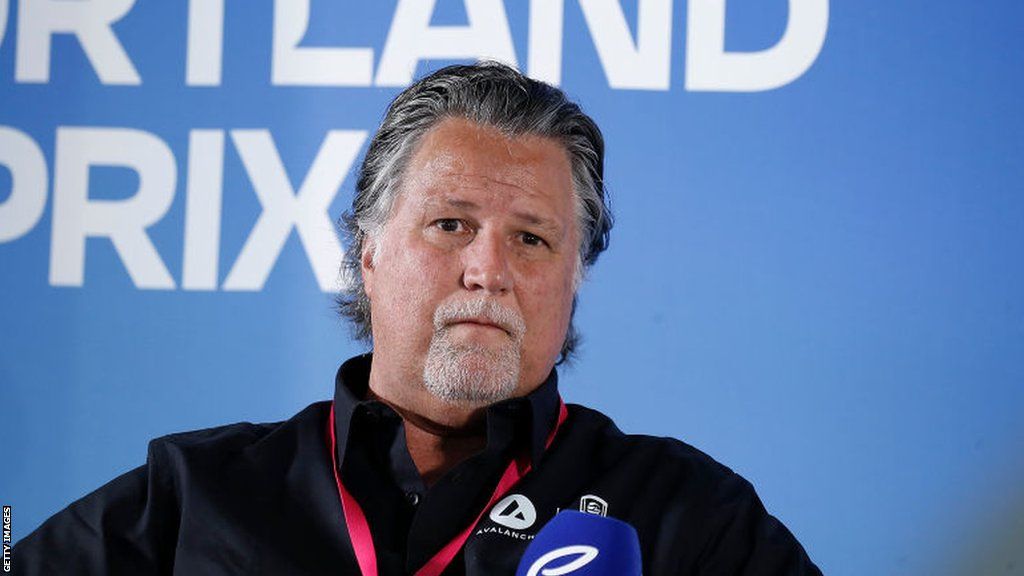As Formula 1 has exponentially grown in profile in the United States, American fans have hoped to see a greater and more authentic investment in the country. Andretti Global’s recent rejection by Formula One Management, however, has forced many of those fans to question F1’s goals here in the U.S.
These concerns are not new; the sudden influx of new fans stemming from Netflix’s Drive to Survive brought with it two new races in America that have come with their own set of questions regarding cost and intention: Is Formula 1 really keen on attracting a longstanding American audience, or is it just trying to grab the money and run?
For many fans, both new and old, any decision made on Andretti Global’s expression of interest in joining F1 would provide a critical answer. Now that Andretti has been rejected, many fans have found themselves frustrated, insulted, and even disgusted.

Andretti Cadillac being rejected by F1 has prompted an outpouring of support from fans.
In speaking to several American F1 fans, I learned that the primary sentiment was “disappointed, but not surprised.” Many feel that Andretti never really had a shot at breaking into the deeply European F1 market and that its ultimate rejection was inevitable. However, as Fred Smith from Road & Track put it in a tweet, he was “surprised how insulting the actual announcement is. Not just conceptually insulting, the rejection was always going to be that. A lot of actual insult.”
Abby, another American fan residing in California, added a similar sentiment: “Not all surprised that they were rejected, quite a bit surprised at how they went out of their way to insult the fanbase they’ve been trying to court! I’ve been watching F1 for 12 years, but I’m done. Final nail in the coffin.”
Multiple people also raised the concern that it seems as if F1 “just wants American money and has no regard for American motorsport history or culture,” as Kate, a motorsport historian, told me.
Several people used the phrase “milking the cash cow,” implying that F1’s interest in America extends only as far as its ability to charge exorbitant fees for events in Miami or Las Vegas. In many instances, these were the same folks who also voiced frustrations to me in 2023 that F1’s American push had actively excluded anyone but people of means or celebrity.
“F1 had the chance to put its money where its mouth is and fully welcome the American market,” journalist Tanner Marlar said. “Instead, it’s opted to try and keep them at arm’s distance. Quite frankly, I hope it bites their hand.”
Fans addressed multiple elements of FOM’s rejection letter. Many were disappointed with the implication that Andretti Global would be uncompetitive upon entering the sport, especially as there are currently very few teams able to actually compete for wins. For many, it seemed an “easy excuse” to write off the Andretti program without actually having to legitimately entertain it.
Others were deeply offended at the statement that Andretti would take more benefit from F1 than F1 would get from Andretti. Mario Andretti is one of two American drivers to ever win the Formula 1 World Drivers’ Championship, and he’s a member of the F1 hall of fame.
Andretti successfully combined racing careers in America and abroad, providing perhaps the most critical link between Formula 1 and U.S. motorsport in racing history, and he used his competitive acumen to create a racing empire with his family.
To imply that Andretti would only leach off F1’s profile, then, has rubbed many fans the wrong way. As one fan told me, “The Andretti name has been in high levels of motorsport for decades, and to be denied because [F1] thinks they will bring [Andretti] more benefits than what they’d bring to F1 is ridiculous.”
And in many ways, it is ridiculous. Andretti Global’s proposal primarily fell flat due to its push to enter the sport as soon as 2025, while it would take Cadillac and General Motors longer to develop a power unit to truly create an American powerhouse.
Rejection on those grounds is appropriate; however, many American fans have argued that the “insulting” rhetoric of the statement has soured them far more than any rejection ever could.
“The explanation F1 used is a cop-out,” writer and photographer John Arndt told me. “It’s not like Andretti hasn’t been part of Extreme E and Formula E for a while.”
Perhaps the relationship between F1 and Andretti Global has resulted in this tense rejection letter, and another American entity would have provided a more amicable rejection – perhaps one that involved F1 taking a greater role in the prospective team to guide it toward success.
Instead, American fans feel both hurt and taken advantage of, and F1 will have an uphill battle ahead in convincing U.S. fans to stick around.
News
Being Tiger Woods‘ son bestowed Charlie Woods with popularity. But the privilege had demerits of its own.
Is ‘Being Tiger Woods’ Son’ Tough For ‘Charlie Woods The Golfer’? Dec 18, 2022; Orlando, Florida, USA; Tiger Woods (top) and son Charlie Woods watch a putt…
The PGA Tour needs a new commissioner and Tiger Woods is a strong candidate for that seat
Why Should Tiger Woods Take Up The PGA Tour Commissioner’s Role In The Future? (L) Jay Monahan (R) Tiger Woods, Credits: USA TODAY Sports As per the…
Tiger Woods’ TGR Lab at Cobbs Creek Golf Course is about to take it to the next level
Tiger Woods hires former West Philadelphia principal to run his TGR Lab at Cobbs Creek Golf Course Meredith Foote, a veteran educator who taught school in Philadelphia…
Tiger Woods still “ignores” Jon Rahm because he left the PGA Tour to come to LIV
Jon Rahm: Tiger Woods Hasn’t Responded to My Texts About Leaving PGA Tour for LIV Harry How/Getty Images Jon Rahm’s controversial decision to jump ship from the…
Carrie Underwood reveals how screen time impacted her children’s behaviour
Carrie Underwood details about the cons of technology for young children Carrie Underwood reveals how screen time impacted her children’s behaviour Carrie Underwood has recently revealed she…
Chiefs QB Patrick Mahomes says Marquez Valdes-Scantling suggested Super Bowl LVIII saving play
The Kansas City Chiefs’ fourth down conversion in overtime against the San Francisco 49ers was clutch and fueled the Super Bowl LVIII winning drive. Patrick Mahomes gained…
End of content
No more pages to load











